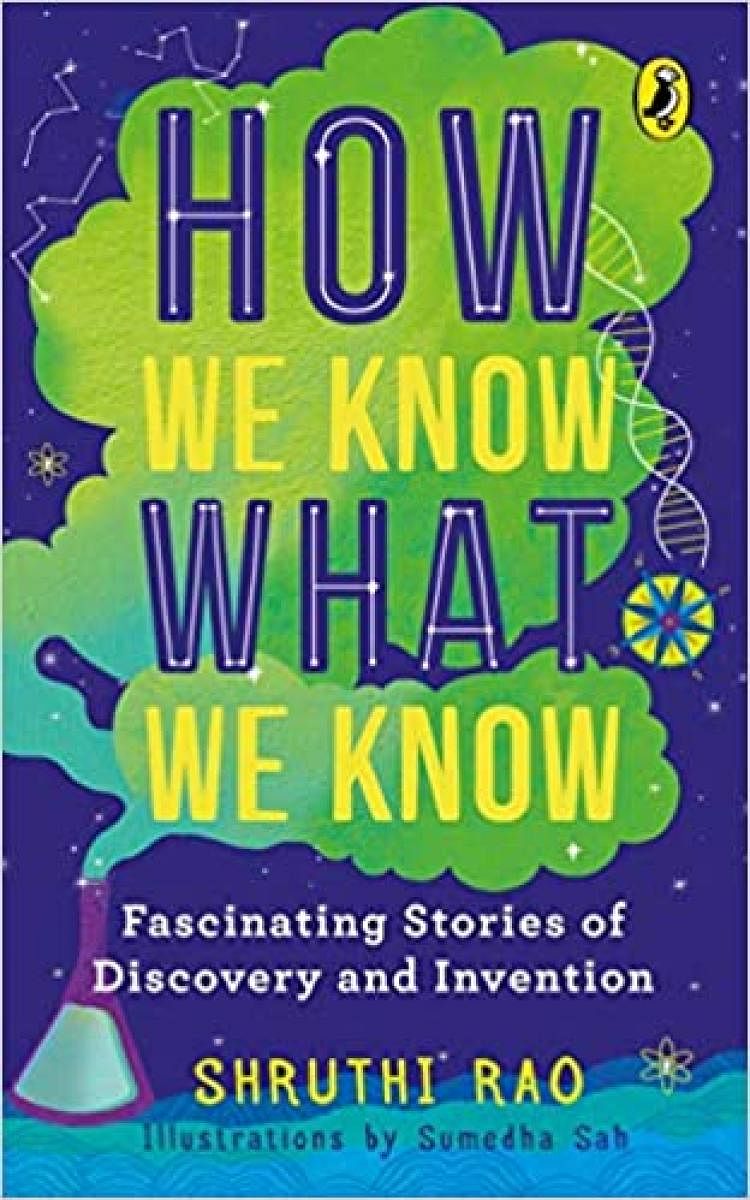
February 28 is National Science Day in India. I love all things science, and have strong opinions on the need for scientific thinking, especially in today’s world. There’s so much misinformation out there, and people are falling prey to it just because they don’t ask for evidence.
I’m also a firm believer in starting young. If children grow up with a scientific mindset, it is more likely that citizens in the future will trust evidence-based information, and take informed decisions.
But I get it. Many kids think science is boring, and reading science beyond textbooks can feel like a drag. But the happy news is that there are a variety of books out there that introduce science to kids in different ways, so the child can choose what works for them. I’ve experimented with different kinds of science writing, my latest being How We Know What We Know, with 50 fascinating stories of discovery and invention, dealing with varied topics like migration, rockets, toilets, relativity, barcodes, 3D-printing, the first movie, and so on. Some children prefer it this way, exciting real-life stories packed with facts.
A Really Short History of Nearly Everything by Bill Bryson gives a hilarious, quick overview of, well, everything, but there’s a lot of science in there, and this format might work best for some kids. Others thrive on biographies, and there are heaps of scientist bios in the market. I have personal experience with those of Curie, Einstein and Galileo written by various authors and published by the Chicago Press Review. My mother bought a bunch of these in-depth biographies, and she and my daughter have been reading them together over video calls (priceless, especially during the pandemic.)
Speaking of scientists, generally, most people think of scientists as old white men, and of scientific research as something that is happening in remote labs elsewhere. For children who tend to be inspired by heroes they see around them, this book might work well: 31 Fantastic Adventures in Science: Women Scientists in India by Nandita Jayaraj and Aashima Freidog, about Indian scientists who are currently involved in scientific research.
What If?: Serious Scientific Answers to Absurd Hypothetical Questions by Randall Munroe, for older kids, is a fun book full of mind-bending problems that force you to think. Children who prefer fiction might gravitate towards books with a blend of science and fiction.
The Calpurnia Tate series by Jacqueline Kelly happens to be a favourite of both my daughter and me. It is a historical fiction novel of a girl in early 20th century Texas, who loves science.
Science fiction has got many scientists started on their journey, and is a wonderful way of appreciating the vast possibilities of science. The classic The Hitchhiker’s Guide to the Galaxy by Douglas Adams is a great beginning. Once children find the kind of science that appeals to them, and science becomes a way of life, they’ll learn to ask questions, and demand evidence, and that’s what the world needs.
The author has written 10 books for children and can be reached at www.shruthi-rao.com
GobbledyBook is a fortnightly column that gives a peek into the wondrous world of children’s books. Hop on! Or as Alice did, plunge into the rabbit hole.